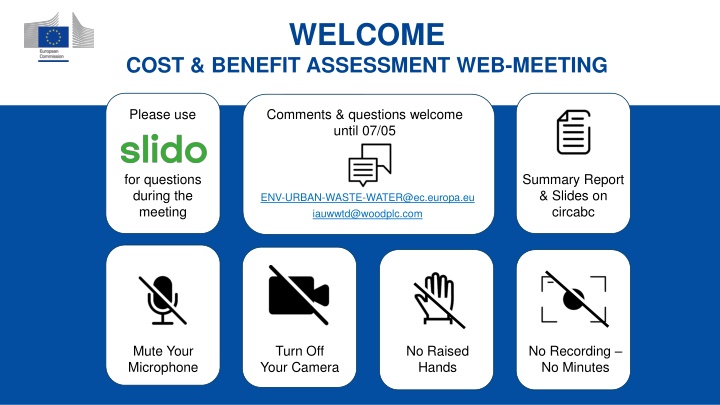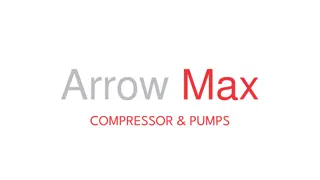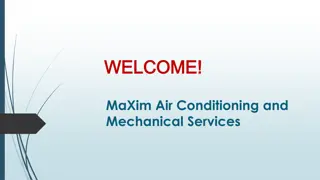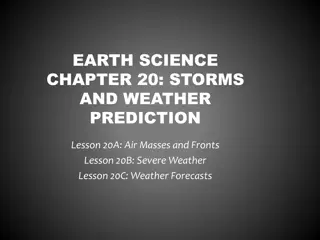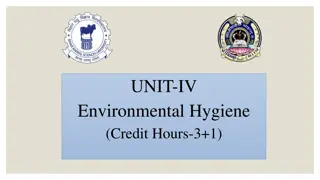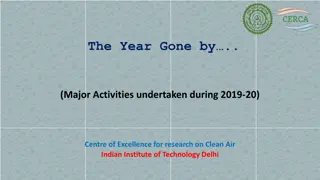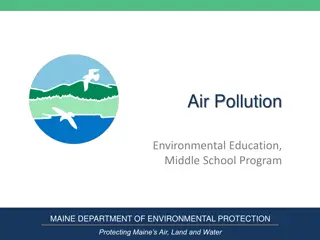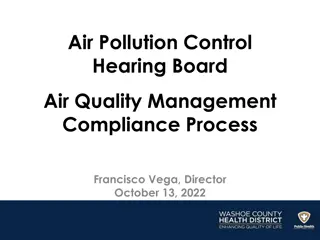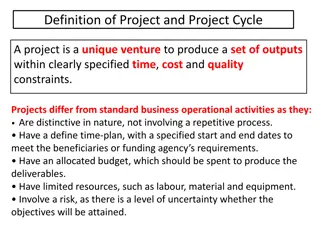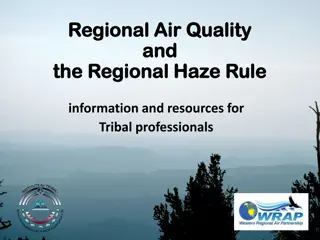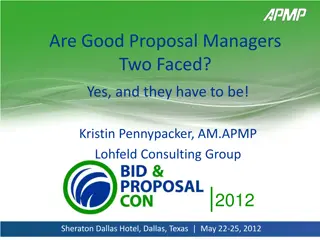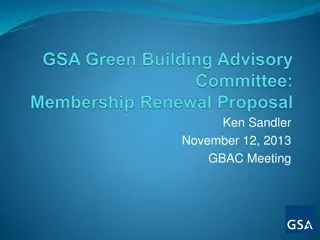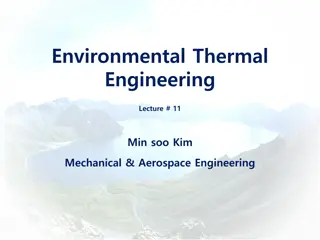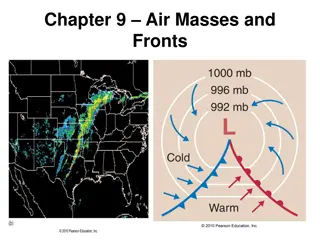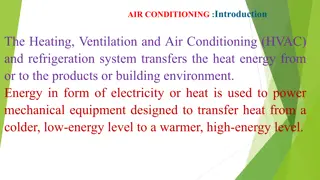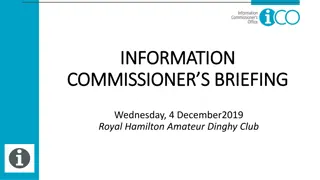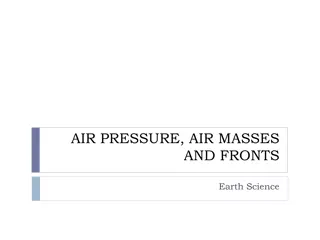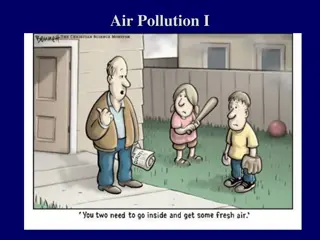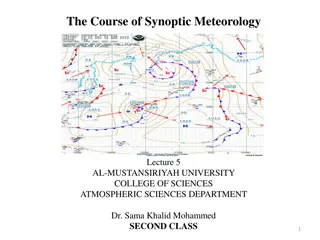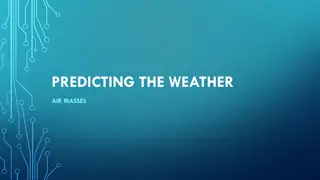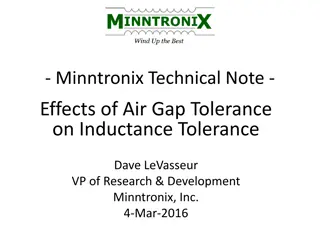AQTAC Committee Project Proposal Review - Air Program Guidance Documents
This proposal aims to initiate a project led by AQTAC to review PADEP's Air Quality Program guidance documents. By comparing the existing guidance to typical state environmental agency standards, the project seeks to identify missing, outdated, or incomplete guidance to better align PA's processes with its economic importance and environmental impact.
Download Presentation

Please find below an Image/Link to download the presentation.
The content on the website is provided AS IS for your information and personal use only. It may not be sold, licensed, or shared on other websites without obtaining consent from the author.If you encounter any issues during the download, it is possible that the publisher has removed the file from their server.
You are allowed to download the files provided on this website for personal or commercial use, subject to the condition that they are used lawfully. All files are the property of their respective owners.
The content on the website is provided AS IS for your information and personal use only. It may not be sold, licensed, or shared on other websites without obtaining consent from the author.
E N D
Presentation Transcript
WELCOME COST & BENEFIT ASSESSMENT WEB-MEETING Please use Comments & questions welcome until 07/05 for questions during the meeting Discussions in breakout sessions Summary Report & Slides on circabc ENV-URBAN-WASTE-WATER@ec.europa.eu iauwwtd@woodplc.com Mute Your Microphone Turn Off Your Camera No Raised Hands No Recording No Minutes
HOW TO JOIN SLIDO COST & BENEFIT WEB-MEETING www.sli.do www.sli.do #UWWTD_CB Use sli.do on your phone to type in your questions. We will answer the questions after each presentation. UWWTD_CB
AGENDA COST & BENEFIT ASSESSMENT WEB-MEETING Tuesday 4th May 2021 Introduction to UWWTD Impact Assessment OECD s Cost & Benefit Assessment Investment gap to reach full compliance Benefit Methodology JRC s approach to Cost Assessment Focus on policy measures related to remaining loads, micropollutants, energy and GHG emission Cost assessment in reporting and monitoring Wood et al. Next Steps & Closing of the web-meeting
Introduction to the cost and benefit assessment for the UWWTD revision 04 May 2021 Virtual meeting European Commission DG Environment, Nele Rosenstock
Objective of the workshop Explain background to MS, targeted stakeholder consultations, OPC Inform about approach Listen to feedback Holistic picture on cost and benefit assessment
Evaluation results Lessons learnt Room for improvement Remaining pollution Effective tool Tangible impacts Eutrophication Simple and targeted instrument Energy use, sludge management Carrot and stick Governance transparency/reporting Benefits >>> costs Coherence with other legislation Source: European Commission, 2019, UWWTD Evaluation
UWWTD Evaluation (2019): Cost vs benefits Annual costs and benefits under a full compliance Difficult to establish 1990 situation Strong methodology in place for costs Limited data available for benefits scenario Source: Wood et al., 2019, Support study to the Evaluation of the UWWTD
OECD study on investment needs Total cumulative additional expenditure by 2030 for water supply and sanitation (WSS) per capita A combination of measures will be needed Source: OECD (2020). Financing Water Supply, Sanitation and Flood Protection
Affordability Share of water supply and sanitation (WSS) expenditure in households disposable income Source: OECD (2020). Financing Water Supply, Sanitation and Flood Protection
Approach to the impact assessment STAKEHOLDER CONSULTATION METHODOLOGY DRAFTING OECD Established models for impacts & costs 2 baselines: 2016 + full compliance Expert engagement Web-meetings Speed dates Stakeholder workshops Conference with DE presidency Online public consultation In line with Better Regulation Guidelines Clarity regarding certainty of findings 1 2 3 3 4 5 DATA ANALYSIS PREPARATION COLLECTION Quantification/modelling by JRC Triangulation of evidence Draft policy measures Consultation strategy Roadmap Externalized studies Evaluation Information from Member States & operators + consultation on modelling assumptions Literature review
Long list of policy measures Storm water overflows, runoff Small Individual systems agglomerations Contaminants of emerging concern Quantitative assessment of effects, cost and benefits for all policy measures to the extent possible! Nutrients Sensitive areas Energy Sludge management Industrial discharges Consideration of interactions of policy measures use/production + climate footprint Reporting and information to the public Monitoring Governance
Approach Investment gap (re-) assessment Support from stakeholders and Member States Benefit methodology Impact assessment Administrative cost assessment Cost and benefit assessment C/B assessment for reporting, monitoring and info to public
Complementation of quantitative assessment with qualitative considerations Modelling cannot answer everything and not everything can be modelled. For all policy measures (modelled and not modelled): Establish what has already been done Filter out best practices from MS or stakeholders Use expert opinions Analyse qualitatively Sources: Literature review MS overviews Expert engagement Consultations Ease of Technical feasibility Administrative burden Enforceability Political feasibility implementation Measure 1 Measure 2 Measure 3
How to contribute? Type Topic // Result Time April (12 weeks) All topics // measures Contribute here: Have your say! Consultation on baseline information, modelling assumptions and technical aspects Joint EEA-ENV reporting workshop (23-24/03) Joint sludge and waste water in the circular economy and climate change (20-21/04) Costs and benefits (04/05) Integrated sewer management (May TBC) Preliminary findings of impact assessment Open public consultation Targeted consultation of Member State and stakeholders April March-May Technical workshops* Stakeholder conference September
Some over-arching considerations Fit for the future & appropriate deadlines Implementation & Enforceability Investments: polluter pays & investing where it makes sense Risk-based approach and/vs EU targets Administrative burden vs timely provision of relevant data Control at source and/vs end-of-pipe action
COFFEE BREAK COST & BENEFIT WEB-MEETING www.sli.do Stay Connected We are back at 15:25 www.sli.do #UWWTD_CB Use sli.do on your phone to type in your questions. UWWTD_CB We will answer the questions after each presentation.
